Daily History Lesson – September 18th
1793 – President George Washington laid the cornerstone to the United States Capitol building, the home of the legislative branch of American government. The building would take nearly a century to complete.
1850 – The U.S. Congress passed the Fugitive Slave Act, which allowed slave owners to reclaim slaves who had escaped to other states.
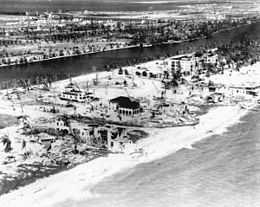
1926 – The Great Miami Hurricane made landfall between Coral Gables and South Miami. With winds estimated at 150 mph, the storm crossed the peninsula south of Lake Okeechobee, entered the Gulf of Mexico, and made another landfall near Mobile, Alabama as a Category 3 hurricane on September 20. It then hooked westward along coastal Alabama and Mississippi, eventually dissipating on September 22 after moving inland over Louisiana. Over 370 residents had died by the time the storm ended.
1927 – The Columbia Phonograph Broadcasting System (later CBS) debuted with a network of 16 radio stations.
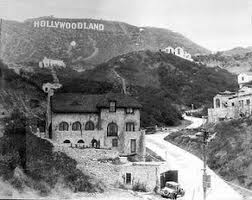
1932 – An anonymous woman telephoned the Los Angeles police and said that while hiking she had found a woman’s shoe, purse and jacket below the Hollywoodland sign (now known as the Hollywood Sign). The woman said she looked in the purse and found a suicide note. She then said she looked down the mountain and saw a body.
The body was that of Peg Entwistle, a frustrated actress who had been missing for two days. Police surmised that she had made her way to the nearby southern slope of Mount Lee to the foot of the Hollywoodland sign, climbed a workman’s ladder to the top of the “H” and jumped.
1939 – William Joyce, an Irish-American fascist politician who had defected to Germany, made the first of his Nazi propaganda broadcasts aimed at British listeners Over the next six years, those broadcasts earned him the derisive moniker of Lord Haw-Haw by the British press.
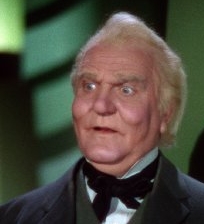
1949 – Actor Frank Morgan (The Affairs Of Cellini and Tortilla Flat – both of which earned him Academy Award nominations – but best remembered for his performance as the title character in The Wizard Of Oz) died of a heart attack at the age of 59.
In addition to playing the Wizard in that epic film, Morgan also played the carnival huckster “Professor Marvel”, the Gatekeeper at the Emerald City, the coachman of the carriage drawn by “The Horse of a Different Color”, and the Guard who blubbers loudly upon seeing Dorothy cry at not being admitted to see the Wizard.
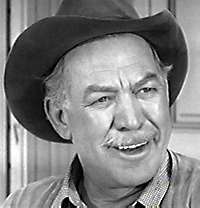
1957 – Wagon Train premiered on NBC. The series ran for eight years.
1959 – Serial killer Harvey Glatman was executed in a California gas chamber for murdering three young women in Los Angeles. Resisting all appeals to save his life, Glatman wrote to the appeals board to say, “I only want to die.”
1961 – United Nations Secretary-General Dag Hammarskjold died when his plane crashed under mysterious circumstances near Ndola in Northern Rhodesia (now Zambia). Hammarskjold was on his way to meet with Moise Tshombe, leader of the breakaway Congolese province of Katanga, with the aim of negotiating an end to the Congo crisis.
1965 – I Dream Of Jeannie and Get Smart both premiered on NBC. Both lasted five years.
1969 – Tiny Tim announced his engagement to Miss Vicki Budinger. He later said, “I was so moved I shed a tear and put it in an envelope that I always keep in my ukulele.”
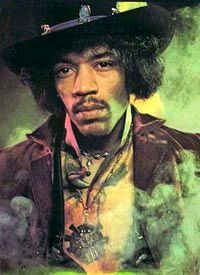
1965 – Jimi Hendrix died of a drug overdose. He was 27.
1973 – Future President Jimmy Carter filed a report with the National Investigations Committee on Aerial Phenomena, claiming he had seen an Unidentified Flying Object in October 1969.
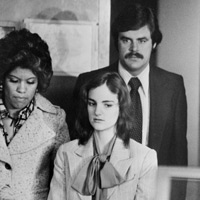
1975 – Newspaper heiress and wanted fugitive Patty Hearst was captured in a San Francisco apartment and arrested for armed robbery. Eighteen months earlier, Hearst, the 19-year-old daughter of newspaper publisher Randolph Hearst, was kidnapped from her apartment in Berkeley, California, by two black men and a white woman, all three of whom were members of the Symbionese Liberation Army.
The situation changed dramatically when Hearst declared, in a tape sent to the authorities, that she was joining the SLA of her own free will. Later that month, a surveillance camera took a photo of her participating in an armed robbery of a San Francisco bank, and she was also spotted during the robbery of a Los Angeles store.
Despite her later claim that she had been brainwashed by the SLA, she was convicted on March 20, 1976, and sentenced to seven years in prison. Her prison sentence was commuted by President Jimmy Carter and she was released in February 1979. She later married her bodyguard. In 2001, she received a full pardon from President Bill Clinton.
1985 – Two years after the Goiania Institute of Radiotherapy moved to a new location in Brazil, an obsolete Cesium-137 teletherapy unit left behind at their abandoned headquarters in Goiania was sold to a local junkyard. Workers at the junkyard dismantled the machine, releasing the Cesium-137 that was still inside. Fascinated by the glowing blue stone and completely unaware of its dangers, they distributed pieces to friends, relatives and neighbors. The cesium was spread around so much that contamination was later found 100 miles away.
Hundreds of people were eventually poisoned by radiation (four died) and more than 40 homes in the city were found to have high levels of contamination and had to be demolished.
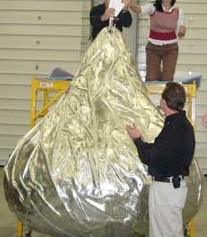
1990 – Hershey’s Kisses with Almonds were introduced to the public when a 6-foot, 500 pound gold colored replica of a Hershey’s Kiss with Almonds was dropped from a flagpole atop One Times Square in New York City.
1996 – Boston Red Sox pitcher Roger Clemens struck out 20 Detroit Tigers, tying his own major league record for most strikeouts in a game; a record he had set ten years earlier against Seattle.
2008 – Opal Courtney, Jr., singer with The Spaniels – ‘Goodnight Sweetheart, Goodnight’) died of a heart attack.
2013 – Former heavyweight boxing champion Ken Norton died after a series of strokes. He was 70.
Compiled by Ray Lemire ©2015 RayLemire.com. All Rights Reserved.
